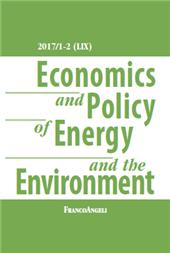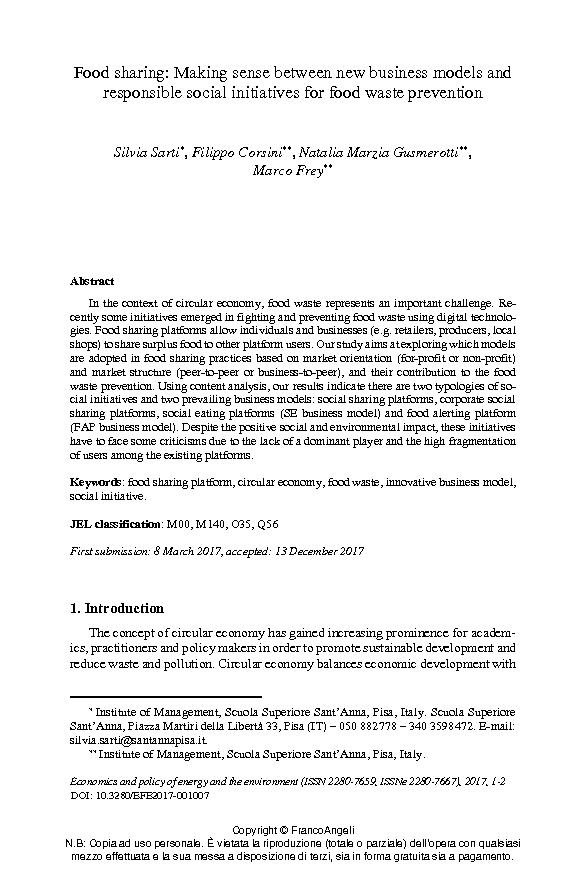2017 - Franco Angeli
Article
Digital Version
Télécharger | Copier/coller | Impression
Food sharing : making sense between new business models and responsible social initiatives for food waste prevention
123-134 p.
- In the context of circular economy, food waste represents an important challenge. Recently some initiatives emerged in fighting and preventing food waste using digital technologies. Food sharing platforms allow individuals and businesses (e.g. retailers, producers, local shops) to share surplus food to other platform users. Our study aims at exploring which models are adopted in food sharing practices based on market orientation (for-profit or non-profit) and market structure (peer-to-peer or business-to-peer), and their contribution to the food waste prevention. Using content analysis, our results indicate there are two typologies of social initiatives and two prevailing business models: social sharing platforms, corporate social sharing platforms, social eating platforms (SE business model) and food alerting platform (FAP business model).
- Despite the positive social and environmental impact, these initiatives have to face some criticisms due to the lack of a dominant player and the high fragmentation of users among the existing platforms. [Publishers' text].
Fait partie de
Economics and Policy of Energy and Environment : 1/2, 2017-
Informations
Code DOI : 10.3280/EFE2017-001007
ISSN: 2280-7667
KEYWORDS
- Food sharing platform, circular economy, food waste, innovative business model, social initiative
-
Dans le même fichier
- The Italian national energy strategy of 2017 : how to increase the RES share
- Fiscal deduction in Italy for energy efficiency in residential buildings : some insights
- Sustainability and energy efficiency of the European industry
- Special section : circular economy : concepts and applications : introduction
- Development of policy metrics for circularity assessment in building assemblies
- Business model experimentation for circularity : driving sustainability in a large international clothing retailer
- Food sharing : making sense between new business models and responsible social initiatives for food waste prevention
- Consumer behaviours and attitudes towards a circular economy : knowledge and culture as determinants in a four-market analysis
- Non-technical barriers to (and drivers for) the circular economy through industrial symbiosis : a practical input
- Circular economy : implementing a small-scale project in a rural area
- Circular economy and sharing consumption : attitudes towards low-carbon tourism
- University campus waste prevention and reduction : a circular-economy approach
- Renewable energy and willingness to pay : evidences from a meta-analysis
- A new evidence on the CIS's environmental pollution-macroeconomic variables relationship



